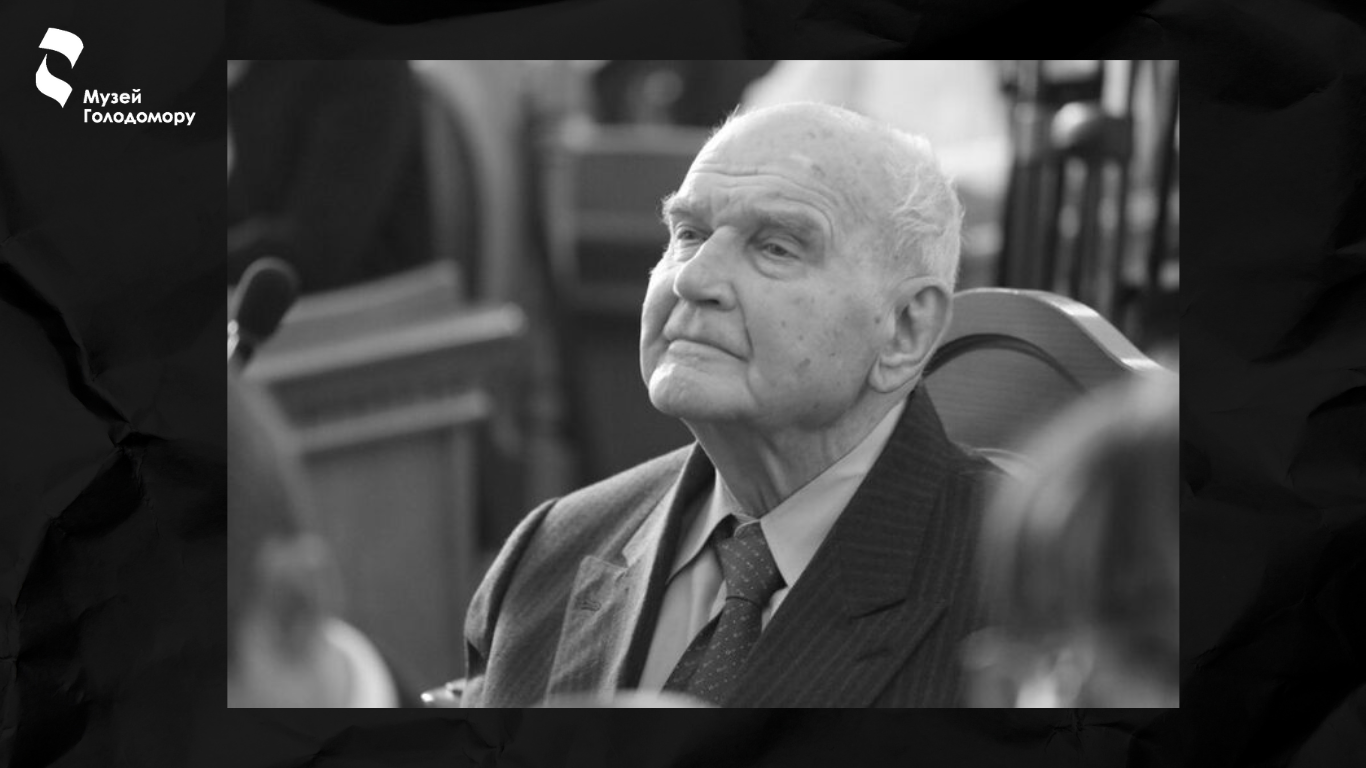Academician Ihor Yukhnovsky died at the age of 98
The team of the National Museum of the Holodomor-genocide expresses its condolences on the death of the Ukrainian theoretical physicist, public and political figure, founder and first Chairman of the Ukrainian Institute of National Remembrance Ihor Rafailovych Yukhnovsky.
Ihor Rafailovych was born in 1925 in the Dubensky District of the Volhynia Governate of the Republic of Poland, so he could only know indirectly about the Holodomor in Ukraine. He recalled how during the Holodomor genocide in Stepan (now Sarnensky district of the Rivne region), where he lived with his parents at the time, he saw starving people trying to find salvation from the Holodomor organised by the Soviet regime.
Ihor Rafailovych returned to the topic of the Holodomor after half a century as an already formed person who had gone through the war, had outstanding achievements in science and a desire to be useful for his country.
All his life, Mr Ihor was rooting for Ukrainians to remain themselves and preserve their culture and history despite the frantic periods of Russification and Sovietization. When he headed the Ukrainian Institute of National Remembrance in 2006, one of the main tasks of the Institute at that time was the study of the Holodomor topic – the most closed, silenced and falsified by the communist regime. Ihor Rafailovich was one of the authors of the text of the Law of Ukraine, “On the Holodomor of 1932-1933 in Ukraine.” He presented the Law in the Verkhovna Rada before the vote.
It was during the chairmanship of Ihor Rafailovich that the concept was created, and the first stage of the National Museum of Holodomor-Genocide Museum was built. He communicated with artists who proposed projects for the construction of the Museum, immersing himself in every detail.
In 2008, on the initiative of the Ukrainian Institute of National Remembrance, the epoch-making edition of the “National Book of Memory of the Victims of the Holodomor of 1932-1933 in Ukraine” was launched and implemented. The named multi-volume edition summarizes valuable archival documents and unique memories of eyewitnesses and created one of the first martyrologies of those who died during the Stalinist genocide.
The importance of developing the topic of the Holodomor of 1932-1933, specifically for Ukrainian society, became obvious for Ihor Rafailovych during his communication with the witnesses of the tragedy, in whose eyes, according to his memories, he saw fear of any kind of authority, which had been imprinted since the time of the experience Holodomor. It was for the sake of overcoming this fear and a fair historical assessment of the Holodomor events of 1932-1933 by the state that motivated Ihor Rafailovych to selfless work in the field of history.
We express our deepest condolences to Mr Ihor’s family and friends.
Thank you for everything you did for Ukraine, Ihor Rafailovych.
Eternal memory!
